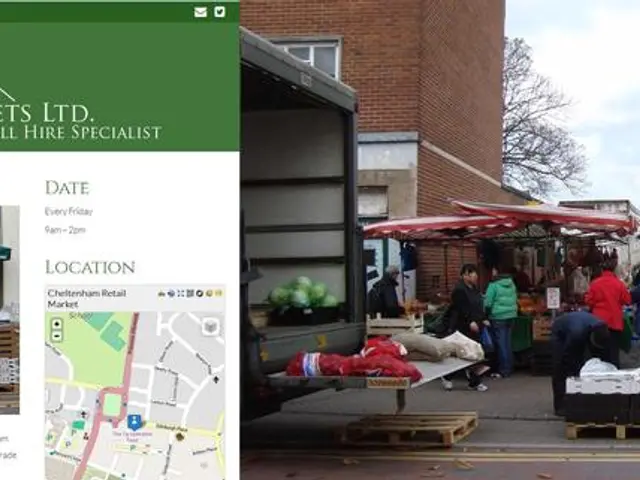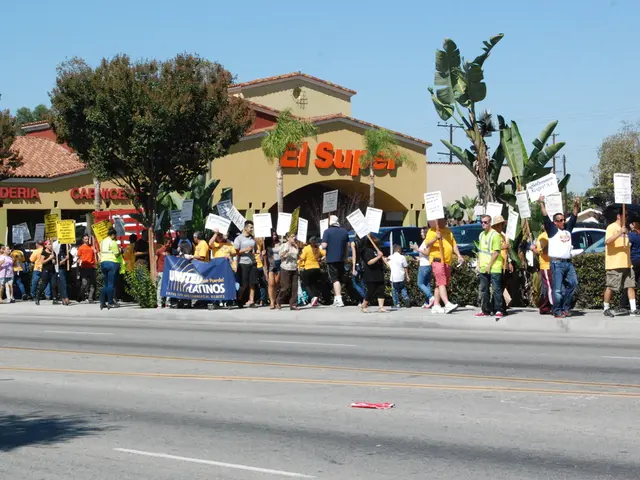Ensuring Fair Access to Clean Energy: Preventing the Exclusion of the World's Most Vulnerable Populations in the Clean Energy Race
In the global push towards renewable energy, it's crucial to ensure that the world's poorest citizens are not left behind. This is particularly true in the case of wind power, as demonstrated by recent developments in Kenya, Mexico, and Brazil.
In Kenya's Rift Valley, the development of geothermal energy has led to Maasai communities losing access to vital grazing lands for their cattle. Similarly, a 500 MW wind project in northeastern Brazil sparked protests and roadblocks from residents of the fishing village Cumbe, who felt broken promises of employment and underfunded social projects were not kept.
To address these challenges, Oxfam has published a brief describing best practices for environmental and social due diligence during the development of energy projects. These practices emphasize the need for policies, business models, and financing schemes that prioritize inclusivity, targeted support for developing economies, and systemic reform of financial and regulatory frameworks.
Policies should prioritize renewables while ensuring equitable access and socio-economic inclusion, particularly for disadvantaged populations. This includes developing coherent, clear, and long-term national energy strategies, implementing enabling regulatory frameworks, and modernizing grid infrastructure and energy storage. People’s needs should be at the center of these strategies, promoting local job creation, community ownership, and inclusion of marginalized groups in decision-making.
Business models should foster decentralized and community-based renewable energy projects, such as local wind cooperatives or microgrids, to directly benefit poor users and reduce transmission losses and costs. Public-private partnerships can also play a crucial role in de-risking projects and facilitating knowledge transfer, particularly for technologies like wind power requiring capital-intensive infrastructure. Flexible models that integrate cross-subsidization or tiered pricing can also ensure that low-income households can afford clean energy while ensuring project financial viability.
Financing schemes should scale up climate finance targeting emerging and developing economies, with an emphasis on concessional loans, grants, or blended finance that reduce borrowing costs and risk for projects in poorer regions. Multilateral development banks (MDBs) like the World Bank should have their lending capacity and mandate enhanced to actively support just transitions, including through debt relief and climate-related swap mechanisms to ease financial burdens on indebted countries. International cooperation is needed to reform global financial architecture, improving access to affordable capital and reducing perceived and real investment risks in markets like Mexico’s wind sector. Investment in enabling infrastructure and supply chains can also lower costs and expand local manufacturing and jobs, helping ensure benefits reach target populations.
Using Mexico’s wind power as an example, success requires aligning federal and state policies to support wind power development while ensuring local communities, especially poorer ones, have access to affordable electricity and employment opportunities. Improving grid infrastructure to integrate wind energy into remote and underserved regions is also crucial. Leveraging blended finance involving international climate funds, MDBs, national banks, and private investors can de-risk and scale projects. Engaging civil society and local stakeholders is essential to maintain environmental and social standards and ensure benefits are shared equitably.
However, challenges remain. Mexico has weak laws and institutions protecting landowners, especially communal landowners, and there have been reports of land contracts being negotiated in bad faith. Landowners in Mexico receive a fraction of what their counterparts in the U.S and Europe receive from wind turbines. Policy frameworks are needed to ensure large-scale renewable energy projects can be integrated into regional and national grids and not channeled solely through private interests at the expense of surrounding communities.
Despite these challenges, Mexico has made significant strides in wind power, with more than 3,200 megawatts of wind power in operation. Companies like Walmart, Heineken, Cemex, and Bimbo are tapping into the wind resource through power purchase agreements. However, transparency in these agreements is a concern, and equity is a primary concern for indigenous communities, who believe the low-cost energy should power their own communities before being exported.
In conclusion, a just clean energy transition requires a comprehensive approach that addresses both the technical infrastructure and the socio-economic dimensions of the transition. Investors can play a critical role by scrutinizing the social and environmental impact of large-scale renewable energy projects, and land values and disputes on communal lands need to be defined and protocols devised to ensure there is a clear path toward sharing benefits from renewable energy projects.
- The development of wind power projects, as seen in Kenya, Mexico, and Brazil, should consider the environmental and social impact on local communities to avoid conflicts and ensure inclusive growth.
- In order to create a just clean energy transition, business models should focus on decentralized and community-based renewable energy projects, providing opportunities for poor users, job creation, and the integration of marginalized groups in decision-making.
- Financing schemes should prioritize developing economies by scaling up climate finance, offering concessional loans, grants, or blended finance, enhancing the mandate of multilateral development banks, and improving access to affordable capital.
- Policies should prioritize renewables while ensuring equitable access, socio-economic inclusion, and addressing challenges like weak landowner protection laws, grid infrastructure, and transparent power purchase agreements.
- Investors can contribute to a just clean energy transition by scrutinizing the social and environmental impact of projects, ensuring land disputes on communal lands are resolved, and protocols are devised for sharing benefits from renewable energy projects equitably.
- In the realm of education and self-development, educating people about sustainable lifestyle options, personal finance management, and the importance of investing in renewable energy can help create a more informed and supportive public for a clean energy transition.








